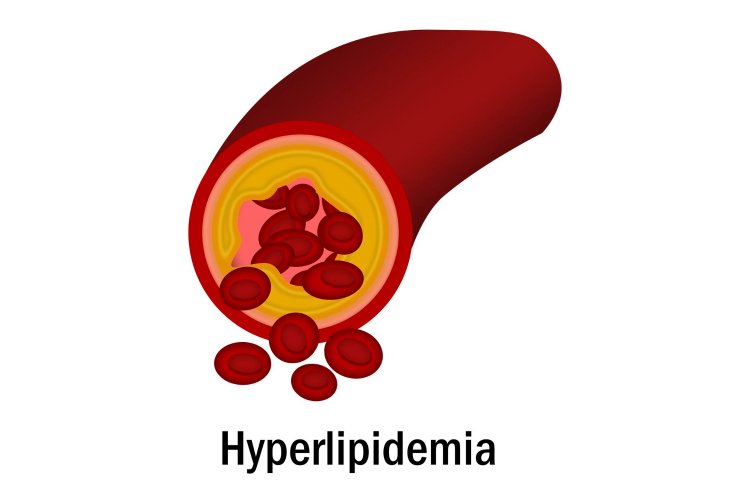Delving Deeper into Triglycerides: Understanding Causes, Effects, and Treatment Options
Triglycerides, a type of fat found in the bloodstream, are crucial for energy production and storage. However, elevated levels of triglycerides can indicate underlying health issues and increase the risk of cardiovascular diseases. Let's explore the intricacies of triglycerides, including their causes, effects, and treatment options.

What Causes High Triglycerides?
Dietary Factors: Excessive consumption of calorie-dense foods, particularly those high in sugars and refined carbohydrates, can lead to elevated triglyceride levels.
Obesity: Adipose tissue serves as a storage site for triglycerides. Consequently, individuals with excess body fat, especially abdominal obesity, often have higher triglyceride levels.
Lifestyle Choices: Sedentary lifestyles, smoking, and heavy alcohol consumption are associated with elevated triglyceride levels.
Genetic Predisposition: Some individuals inherit genetic mutations that predispose them to high triglycerides, irrespective of lifestyle factors.
Underlying Medical Conditions: Health conditions such as diabetes mellitus, hypothyroidism, kidney disease, and metabolic syndrome can contribute to elevated triglyceride levels.
Medications: Certain medications, including corticosteroids, diuretics, beta-blockers, antipsychotics, and oral contraceptives, may elevate triglyceride levels as a side effect.
Effects of High Triglycerides
Elevated triglyceride levels can have far-reaching consequences:
-
Cardiovascular Diseases: High triglycerides often accompany other risk factors for cardiovascular diseases, including hypertension, insulin resistance, and dyslipidemia, contributing to atherosclerosis and coronary artery disease.
-
Pancreatitis: Extremely high triglyceride levels can trigger acute pancreatitis, a potentially life-threatening inflammation of the pancreas.
-
Metabolic Complications: Elevated triglycerides are a hallmark feature of metabolic syndrome, a cluster of conditions that increase the risk of type 2 diabetes, stroke, and non-alcoholic fatty liver disease.
-
Altered Lipoprotein Profile: High triglycerides are frequently associated with low levels of high-density lipoprotein (HDL) cholesterol and an increase in small, dense low-density lipoprotein (LDL) particles, exacerbating the risk of atherosclerosis.
Treating High Triglycerides
Management of elevated triglyceride levels typically involves a multifaceted approach:
Dietary Modifications: Emphasize a balanced diet rich in fruits, vegetables, whole grains, lean proteins, and healthy fats while limiting intake of refined carbohydrates, sugars, and saturated fats.
Regular Physical Activity: Engage in aerobic exercises, such as brisk walking, jogging, or cycling, for at least 150 minutes per week, supplemented by strength training exercises to improve insulin sensitivity and lipid profile.
Weight Management: Achieving and maintaining a healthy body weight through calorie control, portion moderation, and lifestyle modifications can significantly reduce triglyceride levels.
Alcohol Moderation: Limit alcohol consumption to moderate levels (up to one drink per day for women and up to two drinks per day for men) or abstain completely, as excessive alcohol intake can elevate triglycerides.
Smoking Cessation: Quitting smoking not only improves cardiovascular health but also helps lower triglyceride levels.
Medications: In cases of severe hypertriglyceridemia or when lifestyle modifications alone are insufficient, healthcare providers may prescribe lipid-lowering medications, such as statins, fibrates, niacin, or omega-3 fatty acid supplements, to reduce triglyceride levels and mitigate cardiovascular risk.
Understanding Low Triglycerides
While high triglyceride levels are a cause for concern, abnormally low triglyceride levels can also warrant attention, as they may indicate malabsorption disorders, hyperthyroidism, chronic liver disease, or certain genetic conditions.
In conclusion, Triglycerides play a vital role in energy metabolism, but their dysregulation can lead to significant health implications. By adopting a holistic approach encompassing dietary modifications, regular exercise, weight management, and lifestyle changes, individuals can effectively manage triglyceride levels and reduce their risk of cardiovascular diseases and related complications.
#Triglycerides #HighTriglycerides #TriglycerideLevels #TriglycerideTreatment #CausesOfHighTriglycerides #TriglyceridesAndHealth #LoweringTriglycerides #TriglycerideManagement #HeartHealth #LifestyleChanges #HealthyLiving
Disclaimer:
The information provided in this article is for educational purposes only and should not be considered medical advice. If you have any health concerns or are experiencing symptoms, it is important to consult with a healthcare professional, such as a doctor or clinic, for proper diagnosis and treatment. Always seek the advice of your doctor or other qualified health provider with any questions you may have regarding a medical condition. Do not disregard professional medical advice or delay in seeking it because of something you have read in this article.
What's Your Reaction?





















